German MP Expresses Concern Over Jailed Iranian Rapper’s Health
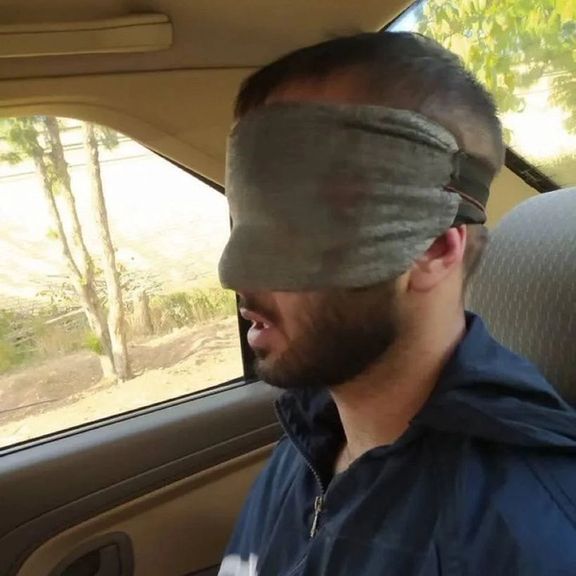
German parliament member Ye-One Rhie has expressed concern over the health condition of Iranian dissident popular rapper Toomaj Salehi who is imprisoned by the regime.

German parliament member Ye-One Rhie has expressed concern over the health condition of Iranian dissident popular rapper Toomaj Salehi who is imprisoned by the regime.
Ye-One Rhie, who is the political sponsor of Toomaj Salehi, wrote in a tweet Wednesday that “Toomaj has been in solitary confinement nonstop for 116 days. His health is worrying. His injuries by torture have never been treated. It's not only his eye but also his hands, his rips and his leg. These could lead to permanent damage.”
She went on to say that the whole world should know who is responsible: Investigator Mohammad Hossein Bakhshi and Prosecutor Mousavian charged Toomaj Salehi with "Corruption on Earth" and "War against God".
In this regard, Toomaj Salehi's twitter account also expressed concern about the deteriorating health condition of the rapper.
Salehi is an artist mostly known for his protest songs about Iran's social issues and injustice by the government. Salehi was arrested on October 30th as part of the crackdown on opponents.
His arrest came shortly after his interview with the Canadian Broadcasting Corporation, saying that “You are dealing with a mafia that is ready to kill the entire nation... in order to keep its power, money and weapons.”
In his politically charged songs such as “Buy a Rat Hole” (2021), Toomaj, a 32-year-old metalworker in Esfahan, spoke out against repression, injustice, poverty, and authorities’ own corruption and impunity from prosecution.
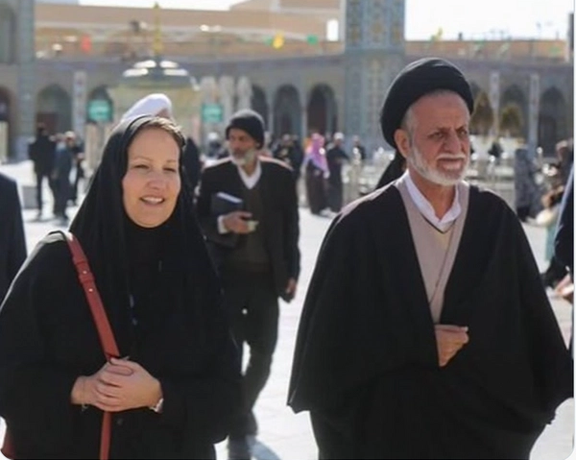
Iranians opposing compulsory hijab are outraged by the Swiss envoy’s decision to wear a long black veil during a shrine visit which a hardliner website has described as “dazzling”.
Photos of Nadine Olivieri Lozano wearing a long black veil that covers the head and the whole body during a visit to Qom were widely published by hardliner media with headlines such as “Swiss Ambassador in Iran Wears Chador” by Hamshahri Online and “Swiss Ambassador’s Visit To Our Lady Masoumeh’s Shrine in Dazzling Hijab” by Arsheh Online.
In the photos, Lozano is seen with several clerics at the shrine and receiving a gift, a religious book, from one of the shrine’s caretakers.
These media outlets said Lozano had traveled to Qom, about 120 km to the south of Tehran, to familiarize herself with Islamic culture and art and the architecture of the shrine. Qom is Iran's second most important religious city, after Mashhad and is home to biggest and most prestigious of Iran's Shiite seminaries.
“Instead of reacting to the atrocities of the regime against women for flouting their hijab or visiting the graves of women and girls who were innocently killed, the Swiss ambassador, who is a woman herself, dons a chador and visits the Shrine of Masoumeh in Qom alongside their killers,” one of the critics, Sarbaz-e Vatan (Soldier of the Motherland), twitted with a photo showing the Swiss ambassador walking with a cleric in the courtyard of the shrine.
Mehdi Hassanpour, another critic, argued in his tweet that the Swiss ambassador’s wearing of the black veil was an insult to both Iranian and Swiss women and demanded her resignation.
Others pointed out that by visiting the shrine and wearing a chador, the Swiss ambassador had provided the “oppressors” of the Iranian women with an opportunity for good publicity at a time when Iranian women were fighting for freedom from compulsory hijab.
Federica Mogherini Former High Representative of the European Union for Foreign Affairs and Security in 2015.
Wearing a chador is required at Shia shrines which often provide them to women who visit. Chadors, however, do not have to be black. The black chador which the Swiss ambassador was wearing during her visit is lauded by the religious establishment as the ‘ultimate hijab’. Visiting female foreign dignitaries are also always required to wear a long headscarf but not a chador during their visit.
Hardliners and clerics of Qom often complain about women in their city not observing the hijab rules “appropriately” and demand its stricter enforcement by the authorities.
According to a commentary by the Revolutionary Guards (IRGC) linked Fars news agency two years ago, the number of women who traditionally wore the black chador was dropping by the day in Qom.
Some of the top clerics in Qom and religious hardliners have repeatedly demanded from the authorities to enforce the hijab rules in their religious city more strictly and to put an end to what they believe are signs of moral depravity among its citizens.
There has been a spate of mysterious poisonings in girls’ schools in Qom since November 30. On Wednesday, three other schools in Qom were attacked and fifteen girls were hospitalized with various symptoms of poisoning.
Some officials have also said that the poisonings could be “deliberate”. In a letter to the prosecutor of Qom Public and Revolutionary Courts Monday, Prosecutor General Mohammad-Jafar Montazeri said “deliberate criminal activity” was suspected in the school poisonings.
Many say on social media that the poisonings that have affected at least 400 girls so far are the work of an extremist group that wants to force girls give up their education by acts of terror.

The United States denied it is pressuring Britain not to list Iran’s IRGC as a terrorist organization, as reported by The Telegraph on Wednesday.
State Department spokesperson Ned Price responding to a question by Iran International’s reporter Samira Gharaei during his press briefing said, “We list the IRGC as a foreign terrorist organization, so the idea that we would be encouraging – actively encouraging other countries not to take an approach that we’ve taken doesn’t ring true to me…,” he said.
The Trump administration listed the IRGC as a terrorist group in 2019 after it withdrew from the 2015 nuclear deal and imposed ‘maximum pressure’ sanctions on the Islamic Republic.
Earlier Wednesday, The Telegraph reported, “Joe Biden’s diplomats are pressing the UK Government not to formally declare Iran’s Revolutionary Guard a terrorist group, despite the Home Office backing the move...The US State Department has argued that the UK can play a key role as interlocutors with Tehran which would be undercut by the designation, according to Whitehall insiders.”
Many politicians in Europe have been urging the designation of Iran’s Revolutionary Guard as a terror organization in the wake of bloody violence against protesters in Iran and IRGC’s other malign activities.
European Union officials, however, have delayed the move arguing that such a decision must be backed by a legal determination of a European court.
British police advised Iran International last week to relocate its broadcast operations from London to Washington DC because of real threats by IRGC agents against its journalists.
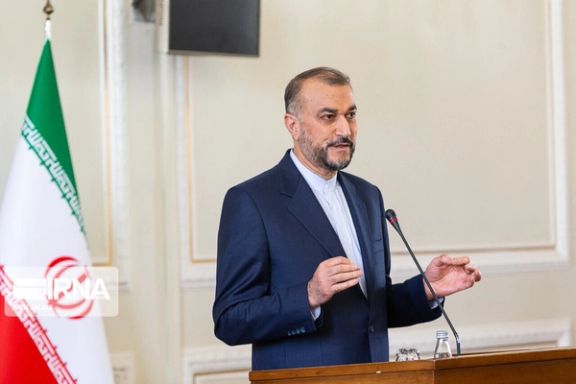
While Tehran has not changed its policies in the region, Foreign Minister Hossein Amir-Abdollahian claimed the Islamic Republic would welcome the resumption of ties with Saudi Arabia.
According to AFP, Amir-Abdollahian made the comments in his visit to Baghdad on Wednesday during talks with his Iraqi counterpart about the stalled negotiations between Tehran and Riyadh, which were held with the mediation of Baghdad.
Baghdad plays the role of a mediator in the talks between Tehran and Riyadh, which have been cut off since about seven years ago.
These negotiations started two years ago in Iraq and have been halted for more than a year now.
At a joint press conference with Iraqi Foreign Minister Fuad Hussein, Amir-Abdollahian said Tehran welcomes the Iraqi government's "efforts to strengthen dialogue and cooperation between Saudi Arabia and Iran."
He also referred to a similar mediation by Baghdad in talks between Tehran and Cairo to warm their relations.
The statements by Amir-Abdollahian come while a few months ago, Mohammed bin Salman, the Crown Prince of Saudi Arabia, and Abdel Fattah El-Sisi, the President of Egypt emphasized the necessity of preventing Iran from acquiring nuclear weapons.
After a meeting in Cairo in June, bin Salman and Sisi stressed his support for international efforts to prevent Tehran from developing nuclear weapons and to create a zone free of weapons of mass destruction in the Middle East.
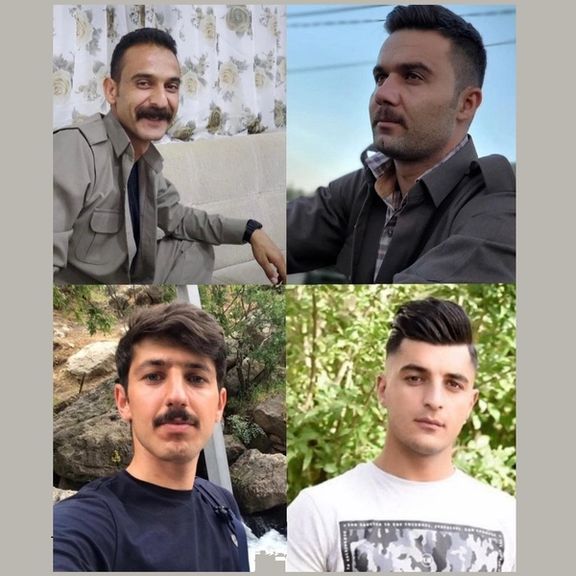
Amnesty International says Iranian authorities have forcibly disappeared four Kurdish dissidents for seven months, by concealing their fate and whereabouts from their families and lawyer.
In a statement on Tuesday, Amnesty announced that Pejman Fatehi, Vafa Azarbar, Mohammad (Hazhir) Faramarzi and Mohsen Mazloum had been “arbitrary” imprisoned since July 2022.
According to the human rights group, the prisoners are at grave risk of torture and other ill-treatment and unfair trials on charges that carry the death penalty.
Amnesty asked the citizens to send a letter to Iran's Chief Justice Gholam-Hossein Mohseni Ejei and other officials of the Islamic Republic, to express their protest to torture, ill-treatment, unfair trials and accusations that could lead to the death penalty for these protesters.
On July 20, 2022, Iran’s Ministry of Intelligence apprehended the four men near Urumieh, West Azerbaijan province, said Amnesty International.
Later, state media reported the arrest of four individuals accused of being “spies” for Israel and planning “terrorist” attacks inside the country.
The legal status of the men is unknown, but the allegations made against them represent offences punishable by the death penalty.
Amnesty International said that it is “concerned about their safety and well-being given the widespread and systematic use of torture and other ill-treatment against detainees, in particular during the investigation stage to extract confessions.”
Iranian security forces have brutally cracked down on nationwide protests in the past five months. Over 500 people were killed, and thousands were detained. Political prisoners usually have no recourse to a fair trial and due process of law.

While some in Iran criticize the government for rising prices, a prominent economist says it is highly unlikely to control inflation without lifting US sanctions.
As the national currency dropped to historic lows this week, conservative lawmaker Javad Nikbin said that President Ebrahim Raisi should be accountable for the chaotic situation and the parliament should put questioning the President on its agenda. He said the Raisi and his economic team are responsible and they should not blame others or the previous government for the country's economic crisis.
Meanwhile, Kamal Hosseinpour, a lawmaker from Piranshahr, who also criticized Raisi and his government for "simply watching the situation rather than trying to solve the problem," warned that a new wave of inflation is on its way.
Hosseinpour charged that the government's economic team has given up trying to solve the country's economic crisis as the national currency is in a downward spiral, triggering higher inflation.
It is not clear why the government has not changed its inefficient economic team, he complained, and introduced new officials who would know how to tackle the problem. He added that while the government is turning a blind eye, the automobile industry’s “mafia” is increasing car prices and has an insatiable appetite for money.
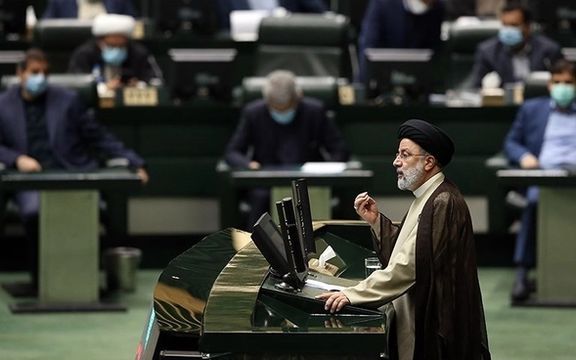
The car manufacturing industry is largely owned by the state and inefficient managers have plunged companies into debt and keep increasing car prices.
On Monday, the government banned a leading newspaper for reporting the rising price of meat in Iran and saying that government policies have deprived both the middle and working classes of meat. On Tuesday the government acknowledged a shortage of red and poultry meat.
Iranian journalist Ali Mojtahedzadeh wrote in an article in Etemad newspaper that "it is not the media's fault that prices in Iran have reached a record high under the Raisi administration." He pointed out that by banning a newspaper for reporting the problem, the government is fighting the truth. He added that last year, even before the first anniversary of Raisi’s presidency, the prosecutor of Tehran reported a more than 50 percent rise in the number of complaints made against the media by the government.
He pointed out that the media should not be punished for publishing reports that politicians do not like. The problem of rising prices is the politicians' fault, and they should be criticized by the media, he said.
In another development, prominent economist Morteza Afghah said in an interview with Didban Iran website that it is highly unlikely the government can control the markets before reaching a nuclear agreement that would lead to the lifting of US and international sanctions against Iran. Even then, he said, Iran should accept the terms of the FATF, an international financial watchdog, to facilitate international trade without causing any concern about money laundering or international terrorism.
Afghah added that rising liquidity and the government's attempts to make up for its budget deficit are the main causes of rising inflation. Referring to rial’s fall, Afghah said that some economist believe the government benefits from it by selling its foreign currencies at a higher rate.
He also pointed out that the most important problems that lead to rising prices in Iran are sanctions and Iran's international isolation. He added that because of these problems Iran is currently selling oil at a discounted price and takes huge losses to repatriate the revenue.